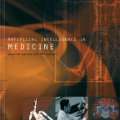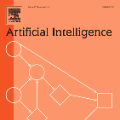We identify several important and unsettled legal questions with profound ethical and societal implications arising from generative artificial intelligence (GenAI), focusing on its distinguishable characteristics from traditional software and earlier AI models. Our key contribution is formally identifying the issues that are unique to GenAI so scholars, practitioners, and others can conduct more useful investigations and discussions. While established legal frameworks, many originating from the pre-digital era, are currently employed in GenAI litigation, we question their adequacy. We argue that GenAI's unique attributes, including its general-purpose nature, reliance on massive datasets, and potential for both pervasive societal benefits and harms, necessitate a re-evaluation of existing legal paradigms. We explore potential areas for legal and regulatory adaptation, highlighting key issues around copyright, privacy, torts, contract law, criminal law, property law, and the First Amendment. Through an exploration of these multifaceted legal challenges, we aim to stimulate discourse and policy considerations surrounding GenAI, emphasizing a proactive approach to legal and ethical frameworks. While we refrain from advocating specific legal changes, we underscore the need for policymakers to carefully consider the issues raised. We conclude by summarizing key questions across these areas of law in a helpful table for easy reference.
翻译:暂无翻译




